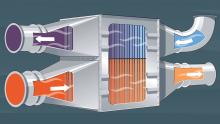Providing the science – and scientists – needed to accelerate biosensor medicine

There is an acute need for implantable devices that can report prompt and accurate data about the body’s chemistry. The EU-funded ImplantSens project developed long-term implantable biosensors for glucose monitoring, to improve the management of diabetes. The project also helped train the next generation of scientists to carry on this work.









